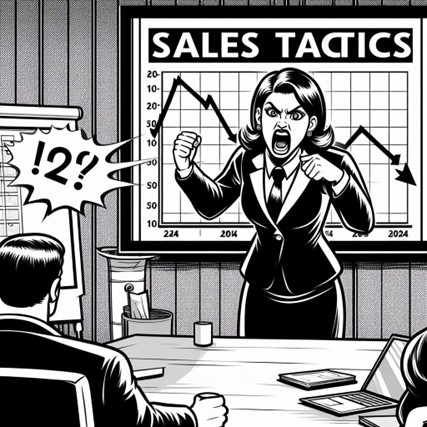What Should Christians Do if Asked to Lie to a Client?
Christians often face difficult ethical dilemmas in the workplace that can test their commitment to biblical principles. One challenging scenario is being compelled to lie or deceive a client or customer. How should a believer navigate such a situation while upholding God’s standards? Let’s consider biblical perspectives on ethical conduct in the workplace:
The Bible’s Uncompromising Stance on Truthfulness: From the very beginning, God’s Word sets an unambiguous expectation for truthfulness and for abhorrence of dishonesty and deception of any kind. In the Ten Commandments, God instructs, “You shall not bear false witness against your neighbour” (Exodus 20:16 ESV). The book of Proverbs repeatedly condemns and warns against dishonest speech (Proverbs 6:16-19, 12:22). Jesus himself stated, “Let what you say be simply ‘Yes’ or ‘No’; anything more than this comes from evil” (Matthew 5:37 ESV). The apostle Paul bluntly states, “Therefore, having put away falsehood, let each one of you speak the truth with his neighbour” (Ephesians 4:25 ESV). Clearly then, scripture leaves no room for compromise: deception and dishonesty violate God’s expressed will.
Integrity: Being a Faithful Witness: As ambassadors for Christ, believers are called to maintain impeccable integrity and a faithful witness to an unbelieving world. Paul instructs us, “Show yourself in all respects to be a model of good works, and in your teaching show integrity, dignity, and sound speech” (Titus 2:7-8 ESV). A Christian’s testimony is quickly undermined by participating in deliberate workplace deception, even under pressure from an employer. Scripture places a premium on honesty as a vital component of serving as an effective witness: “We have renounced disgraceful, underhanded ways. We refuse to practice cunning or to tamper with God’s word, but by the open statement of the truth, we would commend ourselves to everyone’s conscience in the sight of God.” (2 Corinthians 4:2 ESV).
Seeking First the Kingdom: When faced with an unethical dictate such as lying to a client, Jesus’ teaching in Matthew 6:33 (ESV) provides a guiding principle: “But seek first the kingdom of God and His righteousness, and all these things will be added to you.” A Christian’s primary allegiance is to God’s kingdom and His righteousness—not the company’s bottom line or another’s unethical demand. Deliberately violating clear biblical ethics is unacceptable, even if professed to be for the firm’s benefit. As the apostles stated in Acts 5:29, “We must obey God rather than men.”
Being a Daniel in Babylon: The story of Daniel is a powerful example of how to maintain ethical integrity while working in an ungodly environment. Despite facing pressure from an unpredictable and capricious ruler to violate his beliefs, Daniel distinguished himself above the other officials because he had an excellent spirit within him. His unwavering conduct caused the king to esteem Daniel’s life as an example of outstanding administration and fidelity (Daniel 6:3-4). Like Daniel, Christians must strive for excellence while never compromising their faithfulness to God’s commands, even amid difficult circumstances. This witness of superior ethical conduct can have profound influence.
Speaking Truth Graciously: When faced with the dilemma of being told to deceive a client, a Christian must have the wisdom and courage to firmly but graciously resist. The apostle Paul instructs, “Let your speech always be gracious, seasoned with salt” (Colossians 4:6 ESV). With gentleness and respect, voice objections to engaging in dishonest practices and propose an ethical alternative. But if compelled to sin against conscience, Scriptural principles must take precedence: “We must obey God rather than men” (Acts 5:29). This may risk professional consequences, but faithfulness to God should remain the higher priority.
Being Salt and Light: Ultimately, Christians are called to be “the salt of the earth” and “the light of the world” (Matthew 5:13-14). Just as salt prevents decay and light expels darkness, believers are to be ethical preservatives in the workplace—championing integrity, pushing back against moral decay, and reflecting God’s truth. When ethical compromise is demanded, the believer must strive to be a bold but humble light shining truth into darkness. As Paul exhorts, “Have nothing to do with the fruitless deeds of darkness, but rather expose them” (Ephesians 5:11 ESV).
The calling to unwavering ethical conduct in the face of pressure to lie or deceive can indeed be daunting. But Scripture provides the foundation, wisdom, and strength to be faithful witnesses in difficult workplace environments. Through gracious yet firm commitment to honesty and integrity, Christians can have profound impact while bringing glory to God.
Related Reads:
Editor's Pick

No Decay, No Defeat: What It Means That Christ’s Body Saw No Corruption
On the Day of Pentecost, Peter stood before thousands and made a startling claim: David's body decayed in the tomb, [...]

GPS Without Eyes: How Ants Silently Shout Intelligent Design
Picture a leafcutter ant navigating the rainforest floor in pitch darkness, carrying a leaf fragment 50 times its body weight. [...]

Does God Truly Care About My Everyday Choices?
We believe God created the universe. We believe He orchestrated the exodus from Egypt and raised Jesus from the dead. [...]
SUPPORT US:
Feel the Holy Spirit's gentle nudge to partner with us?
Donate Online:
Account Name: TRUTHS TO DIE FOR FOUNDATION
Account Number: 10243565459
Bank IFSC: IDFB0043391
Bank Name: IDFC FIRST BANK






